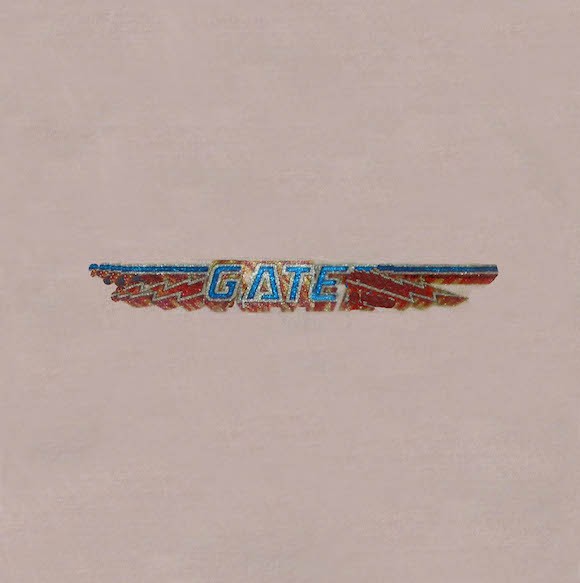It’s a sentence some rock fans may want to read twice: Saturday Night Fever is The Dead C’s Michael Morley toying with disco. That’s right, the guitarist and singer of the best rock band of the past three decades bar none, is having a crack at the Bee Gees and their ilk. And yet, think a bit about both the Dead C and Morley and it starts to make a semblance of sense. Away from the stage and record, Michael Morley is a jovial presence with a sly sense of humour and, like his bandmates, has none of the self-aggrandising pretensions of many comparable underground rock stars, and whilst Saturday Night Fever may seem a world away from previous Gate albums like The Dew Line, with their monochrome covers and noisy attacks on song form, a quick trawl through the discography of The Dead C shows a constant desire to push against the boundaries of rock idioms. In the wider context of what Morley has been doing for over 30 years, this album makes a lot of sense.
It must be said that no disco fan will be keen to put this album on a shelf alongside their Ottawan and Gloria Gaynor LPs. This is disco in the most mutated form imaginable, with Morley’s ragged guitar phrases the centrepiece, just as it is on the rest of his oeuvre. Where before Morley created maelstroms of feedback and riffs with the guitar and its pedals alone, allying them to repetitive drum machine beats actually frees him up to unleash even more potent torrents of mulchy punk/metal sturm und drang, with riffs joining the beats to flesh them out whilst his solos blitz their way across the auditory spectrum. He may sound like Rust Never Sleeps-era Neil Young on a comedown in the way he mangles his axe and drenches it in feedback and saturation, but Michael Morley is a dextrous and subtle guitarist, one who takes the limitations of solo work and turns them to his advantage, using loops to their fullest potential. Put simply, the guitar work on Saturday Night Fever, especially on opener ‘Asset’, is superb.
That won’t necessarily stop full-on rock fans baulking at the upbeat rhythms and blaring horns on ‘Asset’, though, but to me, they don’t represent a side-step from his "normal" work, but rather an exciting and enjoyable potential new avenue of exploration. The repetitiousness of the beats takes on a krautrock cmotorik" aspect as the track progresses, with the horns more flashes of colour than intrusive nods to the cheesiness of much disco. Meanwhile, when Morley moans "You could be daaaancing" like one of the Gibbs submerged in treacle during an acid trip, it’s nothing short of thrilling. ‘Licker’ goes even further, dissolving the choppy beats, sparkling horns and feedback gunk into a sea of shimmering synth drone, as if this strange hybrid of noise and disco has collapsed in on itself. ‘Caked’, which opens on more untidy synths, quickly evolves into a finger-snapping lope that War might have been proud of, although I’m not sure what the funksters would have made of Morley’s cracked, muffled vocals. As the track dissolves into an ambient synth haze, it’s not so much the Bee Gees and disco as the Funkadelic of Maggot Brain that comes to mind.
Saturday Night Fever is certainly an odd album, something perhaps best encapsulated by the queasy hauntology funk of closer ‘Hijack’ (has Morley hijacked funk, disco and R&B on this album, twisting them to his own nefarious ends?), with its nineties shuffle and muted sampled horn loops layered over more of his surly vocalisations. Eventually, all fades until we’re left with five minutes of drifting, melodic ambient calm. Saturday Night Fever will not be to everyone’s taste, but Michael Morley treats disco and funk with the utmost respect, digging through their DNA to strip out the commonalities with his preferred noisy rock-based drone and, after exploring the tensions to the fullest, arrives at a sea of tranquility. A weird journey well worth following him on.


